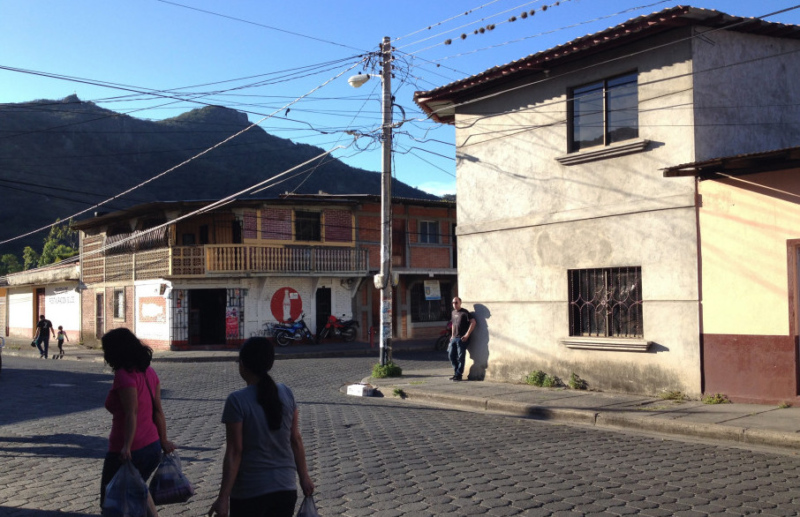The Washington Post & the OAS Secretary General
The OAS needs to be reformed, but the changes need to emerge from accurate analysis of the problems confronting both Latin America and the OAS.
In the midst of upcoming elections, the possibility of the construction of a canal, and an increase in political opposition by religious groups, Nicaragua is experiencing dynamic changes both politically and economically. The Inter-American Dialogue had the pleasure of engaging with panelists from the Nicaraguan Foundation for Economic and Social Development (FUNIDES) and the National Democratic Institute (NDI) during a recent event on Nicaragua’s political and economic outlook. Juan Sebastián Chamorro and Carlos Muñiz of FUNIDES shared their perspectives on economic growth and development, while Jim Swigert of NDI addressed the political dynamics that have characterized Nicaragua since the consolidation of Ortega’s power with the 2006 reelection.
The main challenges that Nicaragua faces today are economic, according to public opinion polls. These include unemployment, low salaries, and an informal economy. FUNIDES Honorary Director Carlos Muñiz emphasized that although Nicaragua has grown economically, as demonstrated by a 3.5% increase in per capita income, other mechanisms should be sought to translate this economic growth into economic development. To achieve this, FUNIDES advocates increasing productivity, strengthening institutions, and increasing access to education in all sectors, three mechanisms that are interrelated and that reinforce each other. Muñiz made a particular point of emphasizing how access to education plays a major role in developing human capital that can further strengthen economic development.
The possible construction of a canal that could potentially bring economic development to the region has become an important issue. There is some opposition to its construction, nonetheless. FUNIDES Executive Director Juan Sebastián Chamorro began by pointing out that the main problem is not the construction of the canal itself but how the process is being conducted. Specifically, there are concerns related to the legality of building of the canal especially after being passed after only two days in the National Assembly. There is also concerns regarding internal displacement, land rights, and environmental damage, Chamorro pointed out. Despite these issues, there is growing approval for the canal project, according to recent public opinion polls.
Jim Swigert, Regional Director for Latin America and Caribbean Programs at the National Democratic Institute, shared his insights on the political dynamics of Nicaragua in light of what he sees as an erosion of Nicaragua’s democratic institutions. Swigert emphasized the historical context that led to the consolidation of Ortega’s political control. This he attributes to the pact between Alemán and Ortega that placed the power in the hands of only two parties, and later in the hands of only the FSLN once Alemán was put in jail for corruption scandals. Since then, Ortega’s power has been consolidated through constitutional reforms that included the removal of electoral limits, the possibility of winning elections with any percentage majority, and direct partisan control of the military and police. This consolidation of power, Swigert argued, can be seen in the fact that 51% of Nicaraguans believe that the Nicaraguan government is moving in the right direction, compared to 19% during Ortega’s first term. In addition, opposition coalitions, such as the PLI under Montealegre, have very low approval rates. Despite this, Swigert noted that there have been popular mobilizations by groups such as the Bishops Council, the Catholic Church, and a branch of the Protestant Church advocating increased transparency and democracy.
There is little doubt of Ortega’s grasp of power, panelists agreed. During his second consecutive five-year term, Ortega has enjoyed a 74% approval rate, and half of Nicaraguans support the FSLN, according to a Vanderbilt University survey. There are several explanations for these high approval ratings, Chamorro highlighted. Not only has the administration been able to address the problem of poverty through social policies, it has also maintained a relatively good security situation, especially as compared to its neighbors. However, some audience members pointed out that having a better security situation than neighbors in the Northern Triangle is not saying much. Furthermore, as Swigert noted, more than half of Nicaraguans surveyed expressed fear of openly discussing politics, suggesting that perhaps the government’s support might also be rooted in intimidation.
This led to a discussion on the sustainability of Nicaragua’s government, especially considering its dependence on the leadership of Ortega. Although they have been receiving support from Venezuela, there is decreased support by other members of the international community, especially in light of Nicaragua’s failure to abide by the international electoral norms, as Swigert pointed out. However, the panelists emphasized that if change were to occur, it would come from real national political pressure for renewed democracy rather than from international pressures. There was consensus among the panelists, in the meantime, that Ortega is in the lead and seems to face little opposition for next year’s election, making it highly probable that he will, once again, be reelected.
The OAS needs to be reformed, but the changes need to emerge from accurate analysis of the problems confronting both Latin America and the OAS.
Although politics has cyclical features, and ideology is sometimes a factor in choices made by Latin American voters, the left-right labels obscure more than they illuminate.
Peruvians want an evolution, not a revolution.
 ENK-Flickr / CC BY-ND 2.0
ENK-Flickr / CC BY-ND 2.0